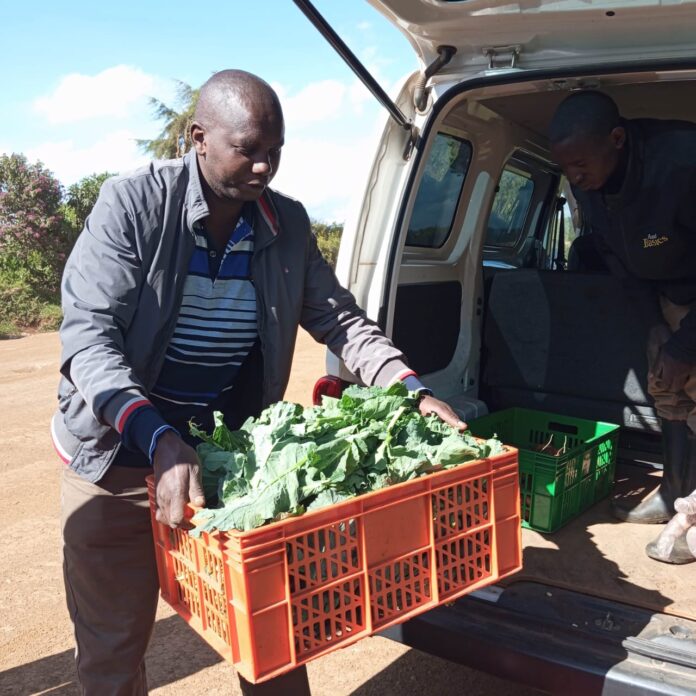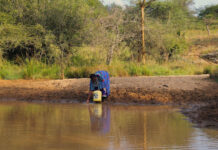By Lenah Bosibori
Nyandarua, Kenya: At the slopes of the Aberdare mountains in Nyandarua County in the Eastern part of Kenya, a new initiative known as Food Banking Kenya (FBK) has been founded and is already saving farmers from losing farm produce.
FBK is an innovative program looks at solving the problem of post harvest loss by placing receptacles in strategic locations to collect surplus food from farms. This excess food is then distributed to vulnerable communities in Nairobi and surrounding areas.
Benson Kagai, a founding member of a group of 600 farmers, is currently donating their surplus produce to vulnerable communities in Nairobi. This initiative has already helped an estimated 5,541,170 people.
“In Kenya, nearly half of all the fruits and vegetables produced at farms are never eaten and are also not taken to the market in good time hence leading to post harvest losses, a trend that is common across Africa,” Kagai told visitors to his farm.
Kagai who grows carrots, spinach, kales and potatoes regularly gives out surplus produce to the FBK.
He always gives all visitors to his farm a basket to harvest as much as they could and donate the harvest to the container that is located a few meters away from his farm.
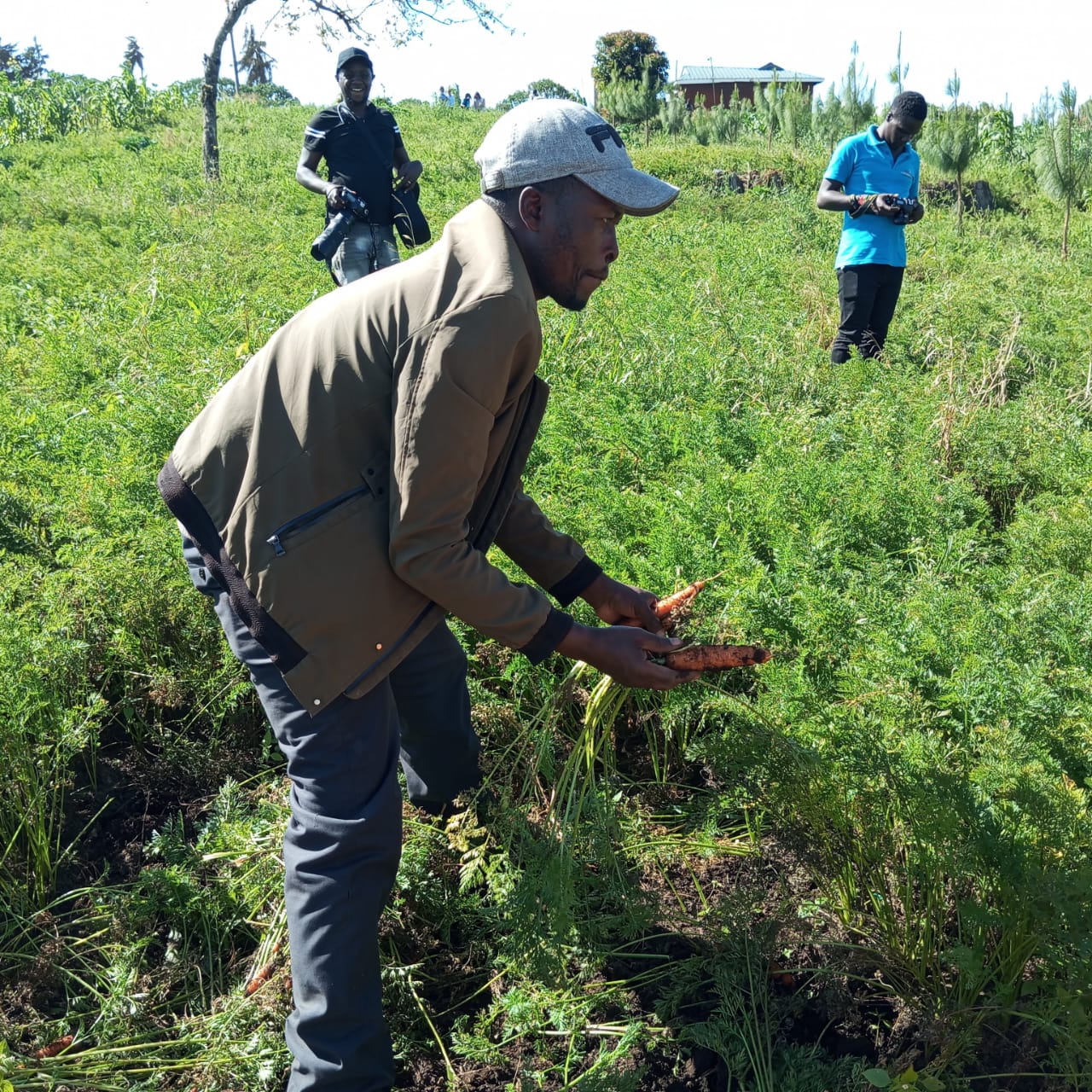
According to data from The Global Food Donation Food Policy Atlas, Kenya loses approximately 40% of the food produced due to post harvest losses. This amounts to an estimated Sh. 72 billion (USD 654,545.448) a year.
The FBK is trying to feed approximately 36.5% of Kenya’s population who face food insecurity from the surplus donated from farmers.
“We are favored by the climate here, we can farm all year round without incurring any problems, this means that we have food all year round,” said Kagai during an interview at his farm.
Kagai however laments at a common trend where farmers in the region grow the same crop making it difficult for them to access local markets.
“We grow the same type of crops here because of the nature of the soil, but later lack a market to sell to, thus ending up having post- harvest losses. The FBK approach is at least paying off, since we are able to earn some money to be able to buy the much-needed farm produce,” reiterated Kagai.
He further adds that all farmers within the locality currently have cabbages, carrots, potatoes, spinach and kales and therefore no one is buying from the other apart from farmers who hawk their produce along the highway who manage to sell their produce.

“Access to markets is the biggest challenge here as every farmer is having the same product with the exception of farmers whose farms are located along the highway and are able to sell to passengers,” adds Kagai.
A few meters from Kagai’s farm stands a food banking container that is used to collect all the excess food from over 600 farmers in the area, the food from the container is later donated in Nairobi to feed children in schools and all the registered organizations in need of food including people with disabilities.
The container is located near a police station to ensure the safety of the food collected at the collection point; the food is later taken away everyday using trucks to various parts of Nairobi, Kenya’s capital city.
“We started partnering with FBK in 2021 and our partnership has yielded fruits since the rate of food loss has declined to manageable levels. FBK has been of great help to us as they give us seeds to use for the next planting season,” adds Kagai.
“We look forward to reaching more people in Kenya who are either dying of hunger or suffering from hunger. I am requesting well-wishers and the government to come up with ways that will help us dry and preserve the excess food we produce so that it can reach the poor and hungry people across the country,” reiterates Kagai.
Lisa Moon, the President and Chief Executive Officer of Global Food Banking (GFB) expresses gratitude to FBK adding that it is the first food banking organization in Sub Saharan Africa (SSA) as unique and strong food banks that ensures no more losses.
“In the past couple of years, we have seen that partnerships with farmers have become a really core source of nutritious food for many food banks and our network,” she shares.
Moon notes that her organization appreciates the initiative since it is one of the strongest agricultural recovery programmes across the world.
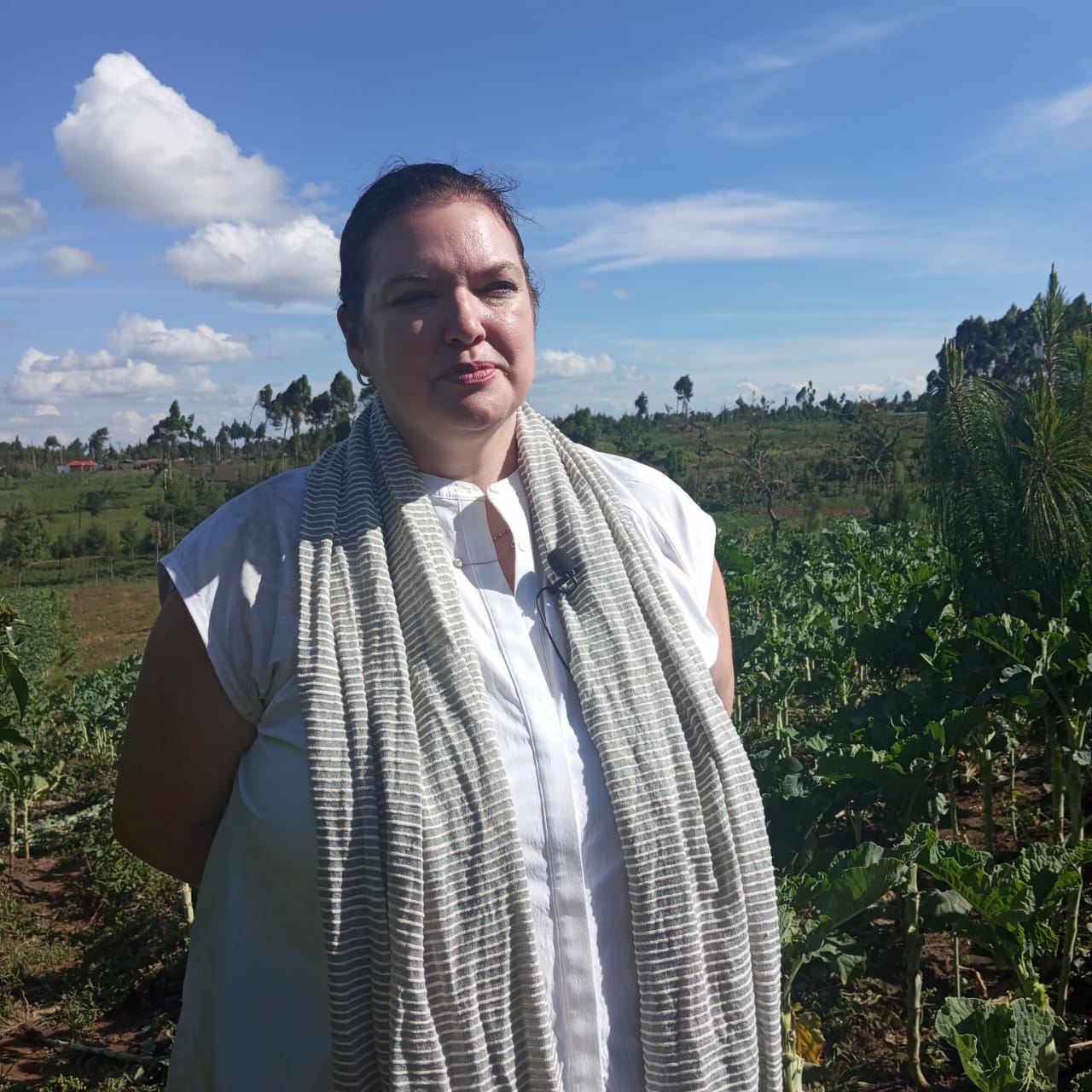
“I feel like there is no one that is more passionate about feeding people than the farmers, even though we have a tremendous issue of about 40 to 45 percent losses. We are striving to ensure that we rescue some if not all,” says Moon.
From Food Waste to Saving Lives
After the food is donated from farmers and stored at the food banking containers in the rural areas, it is finally collected by trucks and later donated to vulnerable schools and children’s homes.
On this day we were privileged to visit one of the beneficiaries of the food banking programme. Gitothua primary school located in the outskirts of Nairobi central business district.
Here, we met Lucy Bereche, the deputy headteacher of Gitothua primary school, in the semi-arid in the outskirts of Nairobi, Bureche says that the initiative has helped reduce absenteeism from the school.
“We have 1,750 learners and most of them are vulnerable since most of them reside in the neighboring slum area in Kiambu County. Concentration of learners has been low but this is now a thing of the past courtesy of FBK,” she adds.
Bereche applauds FBK emphasizing the impact it has created in the school that includes performance in examinations.
She notes that absenteeism has reduced and the school’s performance has also increased as every child knows that when they come to school, they will get something small for their stomach in case they sleep hungry.
She thanks FBK on behalf of the learners, for donating maize, beans, fruits and assorted vegetables on a regular basis. The school has been benefiting from the initiative for the last one year
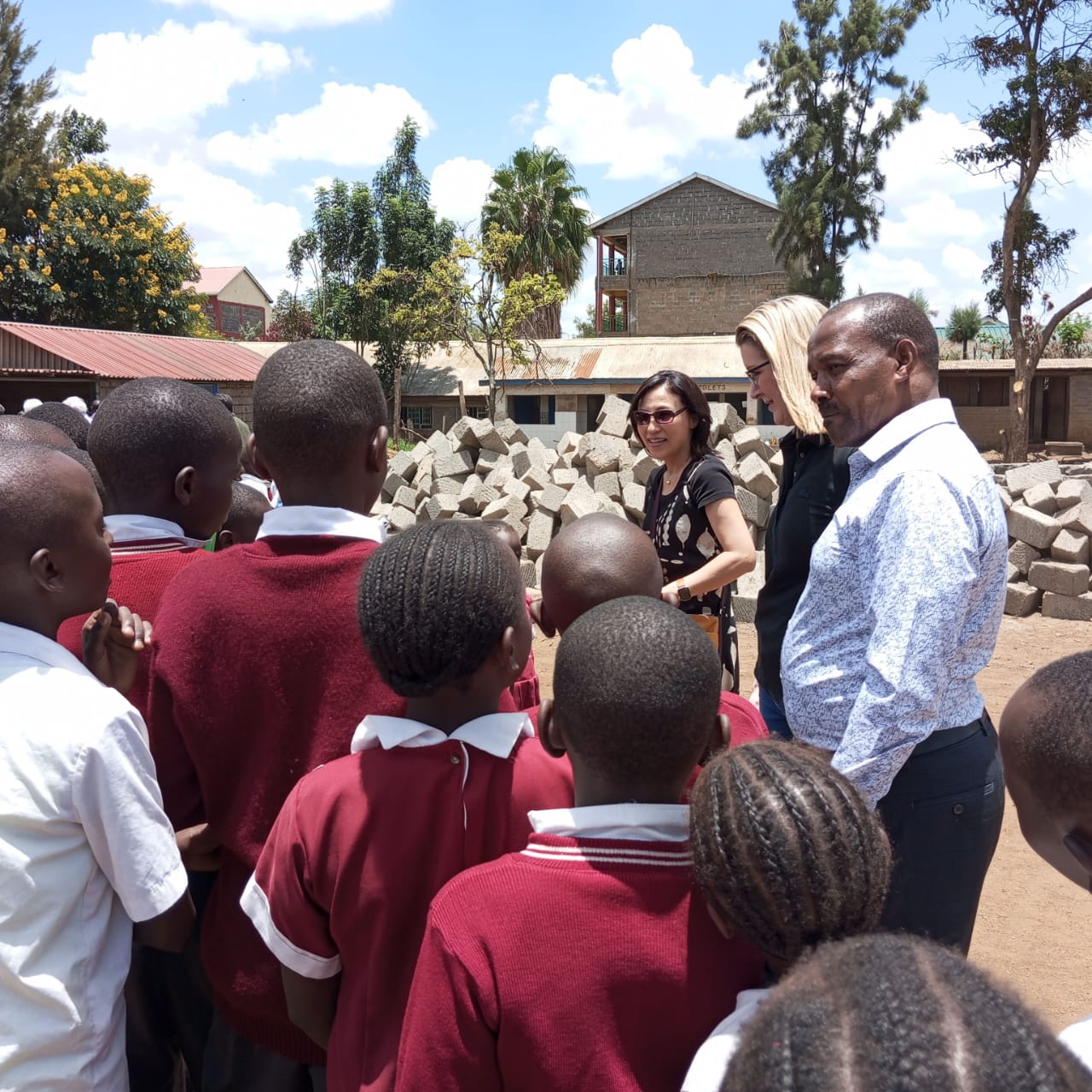
Food Bank Kenya Reducing Food Waste,
Moses Nyoro the Co-founder and Director Business Development at FBK says that the aim of the initiative was to reduce food waste by partnering with retailers, farmers and other organizations that are in the food chain business.
“Through the initiative we have been able to reduce methane gas emissions because we use a technology called Food verse that is a virtual technology that helps us in calculating and tracking how much carbon is saved when food is recovered,” adds Nyoro.
Food verse virtual food banking app is the first such pilot in Africa working together with food banks in Latin America and Asia who have virtual platforms and differs from traditional food banking in that it directly connects suppliers with surplus food to agencies that feed people like churches and schools.
The application was developed to help close the gap between wasted food and consumers who urgently need food.
“Before we registered FBK in 2016, we used to contribute money and we would visit homes that needed our support. We later realized that we needed more resources to be able to help,” says Nyoro.
“Through our travel and engagements, we got to see how food banks worked in other parts of the world like Europe and the US and we decided to start our own food bank in Kenya,” adds Nyoro.
FBK Promotes a Positive Climate Change
He adds that at first, people did not understand what the initiative was all about but had to take time explaining to them so that they could donate food surplus from their farms, processing industries, retailers and distributors.
Nyoro says that the initiative is so far having a positive impact on climate change because food that would be buried in landfills to produce methane gasses which will last for years is now being utilized and easily accessed by the people in need.
“This is a positive impact we are having on our environment when we reduce food loss and the amount of gas that is being emitted into the atmosphere,” Nyoro reveals.
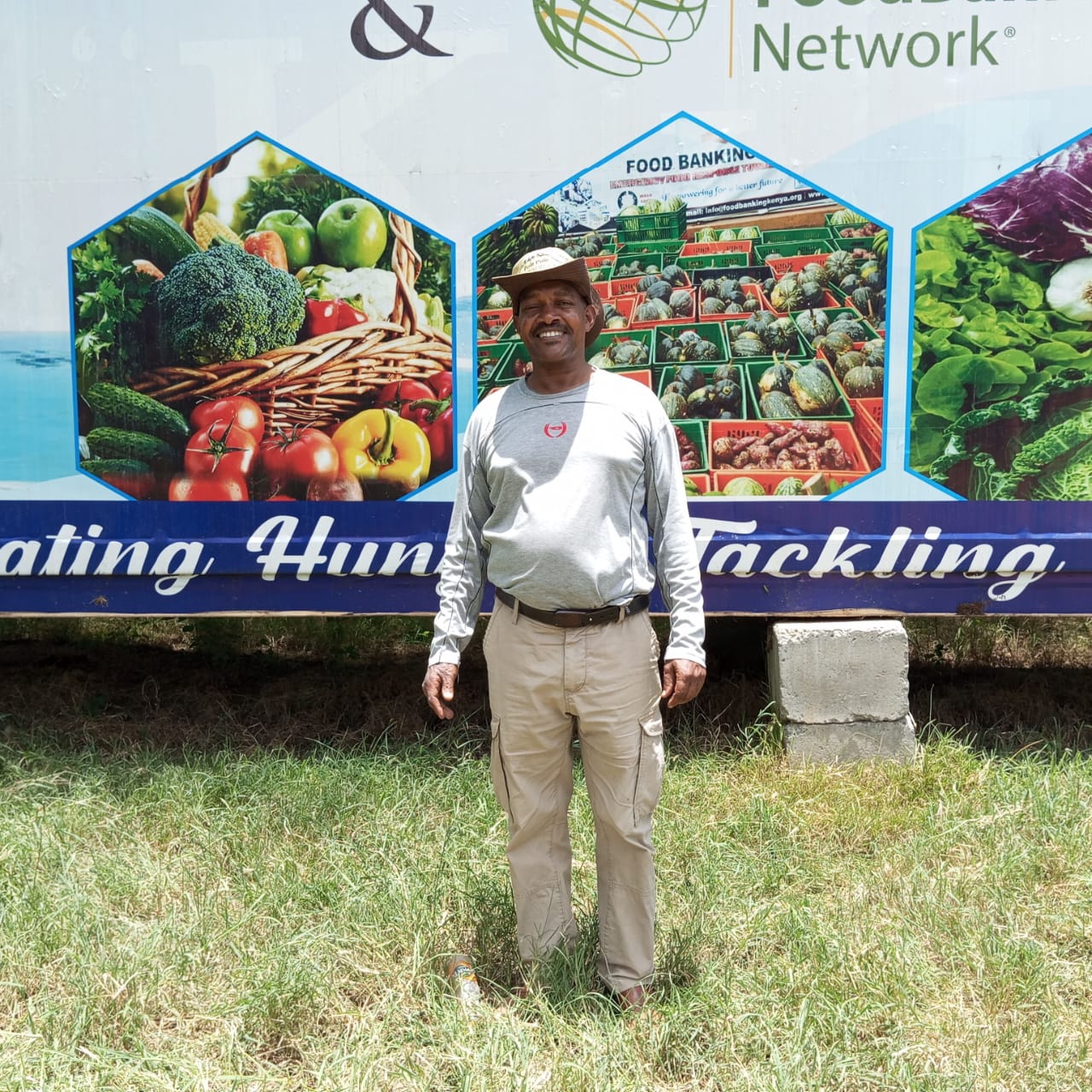
He notes that under the initiative, farmers are also using solar dehydrators to extend the shelf life of perishable products and at the same time introducing a cold storage solution in addressing food insecurity within the country,” he adds.
Challenges Faced
Despite the development, some farmers still do not know what FBK is all about and therefore are hesitant to willingly join the initiative.
However, managers of the initiative need resources to be able to meet administrative and transportation costs.
These resources will also enable them to pay for warehousing, and employ human resources who can oversee the programme without challenges of their welfare.
Issues on food donation and distribution is another challenge according to Nyoro. “Currently we don’t have a policy to guide on donation and distribution in Kenya, if it is put in place we will increase the numbers of donors,” adds Nyoro.
Nyoro notes that GFB has been a pillar for FBK since 2020, during Covid 19 period when the organization linked them up with international corporations that advanced them financial support.
“They supported us in purchasing nine trucks that we are using to deliver the food to various destinations,” he adds.
GFB, he adds, has also trained staff on food handling, recordings and food verse technology during training sessions that have led to a better understanding of how food banking works.

